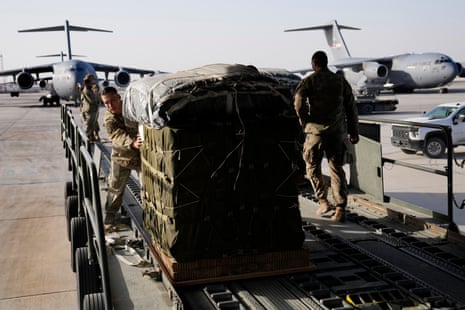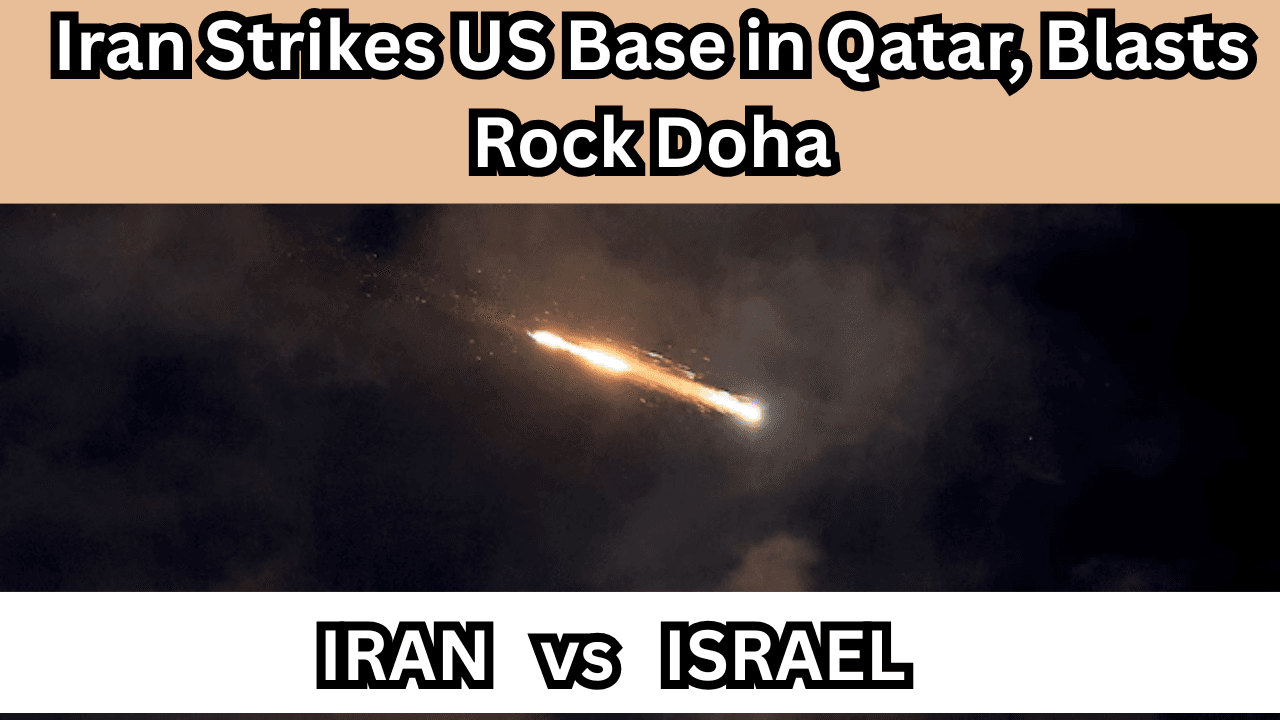Iran Strikes US Base in Qatar, Blasts Rock Doha
Tensions in the Middle East reached a new high as Iran launched a missile attack on a US military base in Qatar, claiming it was in retaliation for prior airstrikes on Iranian assets. The strike, confirmed by multiple defense sources, targeted Al Udeid Air Base, a major hub for US operations in the region. Loud explosions were reported in Doha, the capital of Qatar, shortly after the missiles landed, sparking fear and emergency responses across the city.
This marks a significant escalation in a long-standing cycle of confrontation between Tehran and Washington, drawing new players and regions into the conflict’s orbit.
Why Iran Struck in Qatar
The Iranian government described the missile attack as a “direct response” to what it called unprovoked aggression against its interests in recent weeks. While details remain limited, Iran has pointed to suspected US or Israeli involvement in airstrikes that killed senior members of its Revolutionary Guard or targeted Iranian proxy groups in Syria and Iraq.
In choosing Qatar, a close ally of the United States but also a nation that often mediates in regional disputes, Iran sent a calculated message: even heavily protected US military zones in politically stable Gulf nations are not beyond reach.

This was not a random act of aggression. It was strategic retaliation, targeting a base that serves as a nerve center for US air operations across the Middle East, including Syria, Iraq, and Afghanistan.
What Happened on the Ground
The missile strike reportedly involved a series of short-to-medium-range ballistic missiles launched from Iranian territory. At least three explosions were heard near Al Udeid Air Base, located roughly 30 kilometers southwest of Doha.
Residents in Doha reported windows rattling and distant booms. Videos circulating on social media appeared to show smoke rising near the outskirts of the city. While Qatari authorities have not confirmed any civilian casualties, emergency sirens were activated in several neighborhoods.
US military officials have so far confirmed minor structural damage at the base and stated that there were no fatalities among US personnel, though several service members were treated for minor injuries related to shock and debris.
Blasts in Doha Spark Panic and Confusion
While the missiles were aimed at the military base, their impact was felt throughout the Qatari capital. Blasts reverberated across Doha, triggering a wave of concern among residents unaccustomed to such events. Emergency services were deployed across key areas, and citizens were advised to avoid unnecessary travel.
Several embassies, including the US and UK missions, issued alerts to their nationals, urging caution and limiting public activity. Schools in some parts of Doha suspended classes for the day, and commercial flights experienced short delays as air traffic was temporarily redirected.
Regional and Global Repercussions
The attack on Qatari soil has ignited alarm among Gulf Cooperation Council (GCC) members, many of whom host US military assets. While the region has long been tense due to ongoing proxy conflicts, this direct targeting of a US base in a Gulf nation marks a serious escalation that could trigger wider instability.

Key Implications:
- US-Iran Conflict May Expand
The decision to strike a base in Qatar—rather than Iraq or Syria—signals a bold shift in Iran’s strategy. It raises the likelihood of broader US retaliation or preemptive moves in neighboring countries. - Qatar’s Delicate Position
Qatar is caught in a tough spot. While it is a key US ally, it also has longstanding ties with Iran and often plays mediator in regional disputes. This attack challenges Doha’s balancing act and may force it to take a more defined position. - Global Energy Markets on Edge
Qatar is one of the world’s leading exporters of liquefied natural gas (LNG). Any perception of instability in the country can rattle global energy markets, especially amid already high geopolitical tension. - Military Posture Will Tighten
In response, the US is expected to reinforce its assets in the Gulf. This may include deploying additional missile defense systems, increasing surveillance, and mobilizing aircraft to deter further strikes.
What’s Next: Escalation or Diplomacy?
The road ahead is uncertain. Washington has condemned the attack but has not yet announced a military response. Diplomatic backchannels are reportedly active, with countries like Oman, Turkey, and Switzerland working to prevent further escalation.
However, given the direct nature of the attack, it is likely that some form of US military or economic response will follow. How Iran reacts in return could determine whether this crisis intensifies or diffuses.
Meanwhile, Qatar will likely seek stronger assurances from both allies and neighbors. A nation that has long prided itself on diplomacy and neutrality now finds itself at the center of a potential conflict.
Conclusion
The Iranian missile strike on a US base in Qatar represents a dramatic turning point in Middle Eastern tensions. It’s not just about Iran and the US—it’s about the fragile security architecture of the Gulf, the vulnerability of even peaceful nations like Qatar, and the risk of a broader conflict igniting in a region already on edge.
As Doha recovers from the shock and the world watches closely, one thing is clear: the lines of conflict are shifting, and with them, the stakes are rising—for governments, civilians, and global stability.






Post Comment